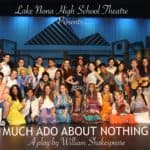Like all of you, the news of Kobe Bryant’s death caught me by surprise. I am literally choking as I write these lines, trying to contain the grief that agglomerates in the chest. I could write articles left and right about his physical attributes and the unique traits of his psyche. My comments would be redundant and repetitive. Therefore, I prefer to share my personal story of the great Mamba. Today, I am not the doctor but a fan in grief.

My first encounter with Kobe in 2010 was everything less than a dream. His bodyguards tried to get me off the court while I watched him practice. I was providing medical coverage at the NBA All-Star Game in 2010. My orders were to remain on the court until the last athlete left. Despite the resistance of his entourage and about five extremely uncomfortable minutes, I stayed. It was worth the snub. The night was long. The man stayed for three hours practicing perimeter shots. He did not stop! It was like seeing a top continuously spinning without losing momentum. He had just finished a two-hour practice session with his team. The man easily lost five liters of body volume, in addition to the many others that he sweated in his first training that day. Interestingly, he was not meant to be there. He was injured and did not play during the All-Star Game. Instead of taking a weekend off somewhere else, he was actively working on his rehab while practicing with the very best.
The next morning, he arrived two hours before his team and again practiced intensely. He was compulsively executing the same shot. This time, he focused more on three-point shots. His technique was perfect. However, he demanded more and more of himself. There were no cameras. His attitude was not a show. My clinical eye saw an obsessive-compulsive man. I, the fan, saw greatness in his quest for perfection because basketball immortality occurs not by pure talent but with incessant practice and exhaustive study of the game. What very few know about Kobe was that, although he spent hours polishing his skills, he doubled that time by observing the recordings of his games and learning from his mistakes. It was not enough to score 81 points in a match; he always wanted to know how to strain 100. There was always fire in his eyes and in his hands, the poison that neutralized his opponents. No wonder he was the Black Mamba. If his career as a player was exciting, the future to come was more fascinating, projecting him as one of the best scholars in the game. That’s why this hurts so much!
Two years later, my wife, my son, Esteban, and I ran into Kobe at the elevators of The Westbury Mayfair. We were at the London Olympics; I was the assigned NBA physician. His gaze was fixed forward, all in silence. I remembered what happened two years ago and avoided greeting him. However, my 18-month-old son had a different plan and reached out to him. My wife and I tried to contain our child. Suddenly, Kobe stared at him. I honestly thought that, like many others, he noticed some of the physical traits my son exhibits as a part of his Down syndrome. But he looked at him differently; it was filled with tenderness. Words were unnecessary. My wife was enchanted. This man finally conquered my heart.
Fly high, my “Black Mamba.”


